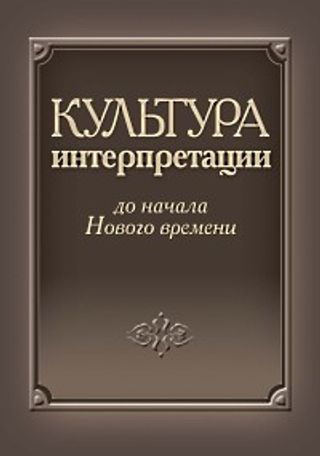?
Культура интерпретации до начала Нового времени
The studies included in this collective monograph reflect the major problems of reception of authoritative texts, doctrines, and concepts throughout the history of European thought from the Patristic era to the beginning of the 17th century. The authors of the monograph perform an analysis of methods and genres of interpretation performed using little-known sources of philosophical and theological thought from the Antiquity and the Middle Ages. This includes the phenomenon of apocryphal literature in the first centuries of the Christian Era, patristic writings of the Christian Fathers, of educational and doctrinal literature of the Middle Ages, the writings of late medieval Mystics, Byzantinian theological works, journalism works of Greek-speaking authors through the era of Turkish domination, and the works of G erman humanist and Protestant writers during the Reformation.
For teachers and students of philosophy, philology, history departments, as well as for anyone interested in history of philosophical and theological thought, hermeneutics and philological culture.
